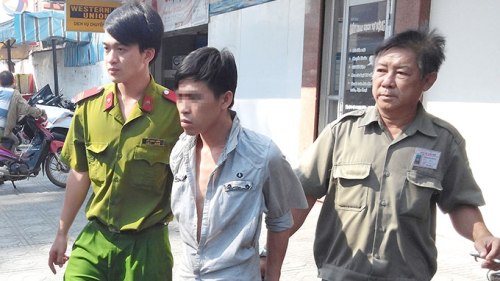The majority of cases of drug addiction in Vietnam also involve crimes and violations by the user.
The fact has left Vietnam in a dilemma in selecting a management model for drug detoxification. Compulsory drug detox programs are regarded as human rights violations while voluntary detox programs been have ineffective.
As many as 70 percent of robbery cases in Vietnam are committed by drug addicts and 80 percent of drug addicts have a low level of education, according to Nguyen Thanh Tai – former deputy chairman of the People’s Committee of Ho Chi Minh City and chief of the drug detox project in the city.
Furthermore, a project of voluntary detoxification at the Drug Detox and Advisory Center belonging to the HCMC Department of Labor, War Invalids, and Social Affairs was piloted last year but too little effect.
It gathered 134 addicts to join the voluntary drug detox program but 100 of them, or 75 percent, left before completion.
Drug detoxification to pull down crimes
The period before 2001 was the peak of drug-related crimes in Ho Chi Minh City and other localities across the nation.
“Then, Ho Chi Minh City had 30,000 addicts and around 70 percent of crimes were drug related,” Tai recalled.
Now the city has around 9,000 addicts.
Local authorities set up a target to crush gangs of criminals, wipe out crimes, and strengthen vocational training for addicts after completing compulsory detox programs.
“There were ideas blaming compulsory detox programs as a human rights violation. But for me it is just a separation of addicts from the drug using environment, not a separation from the community,” Tai said.
“Their families and agencies can visit them regularly,” he stressed.
At the time, the government at grassroots levels had steering committees to select addicts and allocate them to rehabilitation centers.
A new addict at a compulsory drug detox center is initially given health care for abstaining from drug addiction. After they temporarily recover in health, they will be guided by information regarding drug and health awareness as well as labor.
Trainees can opt to join academic classes and vocational training in the compulsory detox center.
The program reaped satisfactory results as crimes decreased considerably. But the implementation of the compulsory detox program could not last long because it was later not approved by the law-making National Assembly.
Before, anyone who produced a positive result in a drug test was sent to a compulsory rehabilitation center. Now he or she is fined VND750,000 (US$36) and released, said Van Kieu – deputy chief of the Office of Labor, War Invalids, and Social Affairs in District 5.
The city has not yet had a legal document to rule the management of addicts. And so, an outbreak of drug related crimes is forecast to return as what happened before 2001.
“What local authorities can do now is to encourage addicts to take part in voluntary drug detoxification centers,” said Pham Duc Trung, deputy chief of the Office of Labor, War Invalids, and Social Affairs in Thu Duc District. “But most of them leave it incomplete after several days.”
In law, the People’s Court has the authority to send an addict to a compulsory drug detox center.
But the waiting time for the approval of the court is another problem. Where is a good place to keep an addict after finding out his positive drug test result while waiting for the court’s approval?
Local health centers and hospitals are unable to receive addicts.
Tai, the former deputy chairman, modified that those who have a good record, especially good academic results, can be recommended to voluntary detox centers, while others must be sent to a compulsory rehabilitation center.






















































